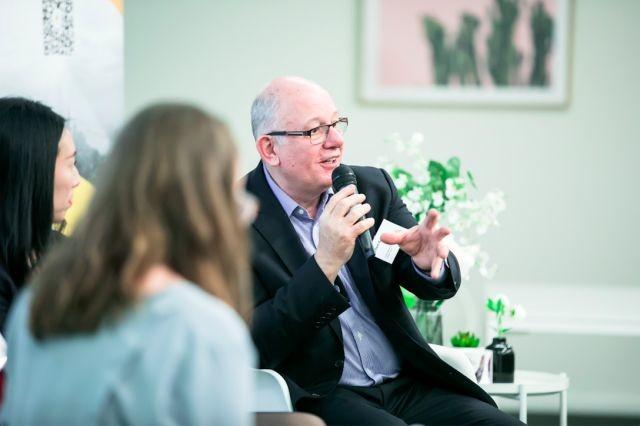Last week, we sat down with Albert Kalaja, Chief Operating Officer of Hidden Cove Solutions and all-round human recourses, IT and management expert. Albert started life as a self-confessed “IT-nerd” before a twist of fate led him to working in HR for more than 30 years. After coming on board at PwC in the IT department, his section was abruptly shut down, and it was only a lucky tea-room conversation that gave Albert the “in” in to the working for the HR department at the very same company. It is no wonder, then, that Albert is an advocate for conversation, human interaction and getting to know your colleagues outside of work - it was one of these conversations that led Albert on his career path to eventually found and manage his own recruitment services company.
Albert is one of the lead coaches at Infinity Coaching Institute where he mentors international students to develop the essential skills required to get into large organisations such as PwC, EY, ANZ, Nexia Australia and AMP. After years of connecting the right candidates to the right clients, Albert knows exactly what potential employers are looking for – and it may just go against your expectations.
One of the main obstacles Infinity clients face is learning how to sell yourself and flaunt your experiences and talents. We are taught that a job interview is an opportunity to speak, to blow the interviewer away with your elaborate CV and perfectly-worded monologues. Albert, however, actually looks out for his client’s listening skills.
"Everyone in a way gravitates towards speaking skills, but I think it’s really important to develop your listening skills. Seeing the other person being relaxed, to me that’s really important, as is engaging with who you're talking to. It doesn’t matter what we’re talking about, as long as there’s engagement."
Albert acknowledges that some international students may not be comfortable with certain protocols and expectations that exist in the Australian workplace. For example, Albert encourages his clients to communicate openly with their managers and let them know if the workload is too heavy. This, he says, demonstrates a difference between the hierarchical workplace structures of Asian countries, and the Australian office.
The best way to get familiar with local customs and culture is to fully immerse yourself in it. Albert acknowledges that for a lot of international students, it's more comfortable to stick with your crowd. However, he says that "it’s important that you push yourself and start listening to Australians speaking, so that you can develop your listening skills". Albert suggests taking a part time job where you mix with lots of different people, such as hospitality.
"Social enclaves are good when you need a bit of time to have to yourself and feel comfortable again, but the more you throw yourself in to the community, the less you’ll need to do that."
The land of recruitment may be scary and difficult to navigate, but it's important to seek the right advice from experienced mentors such as Albert. Above all, he says that a positive mindset is the key to success.

